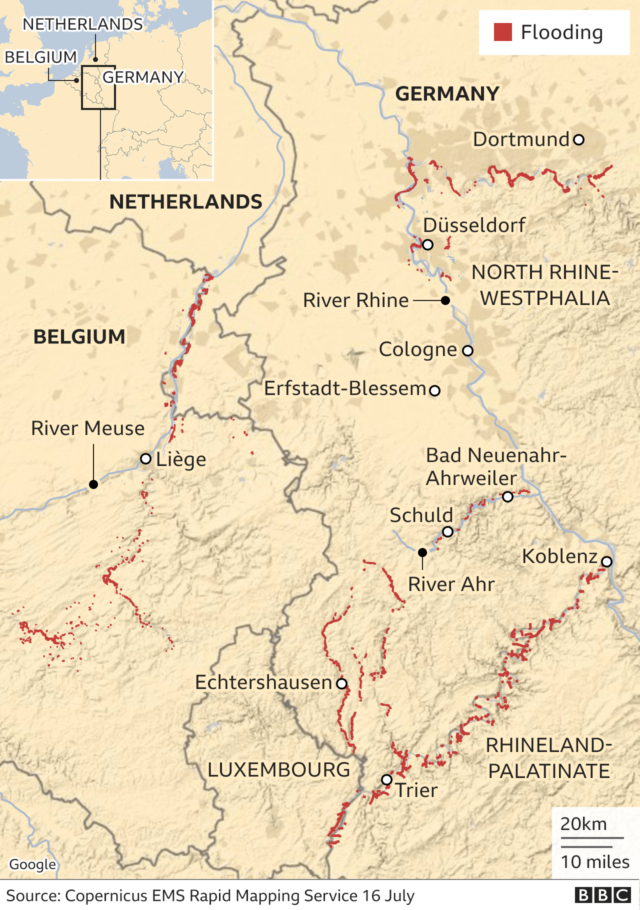At least 120 people have died and hundreds more in Western Europe are unaccounted for after some of the worst flooding in decades have happened. In Germany, where the death toll now stands at over 120, at least 20 people have died in Belgium. The Netherlands, Luxembourg and Switzerland are also worst affected by it. The number of missing person has risen to another 1,300. The states of North Rhine-Westphalia, Rhineland-Palatinate and Saarland have been the worst affected by the rainfall. Rainfall has leaded the rivers to burst leading to the floods. The condition is so bad that the roads have buckled and washed away. Cars have piled atop of one another. Houses were inundated to the roof tiles.
Although days before the floods, a European Weather agency issued an ‘extreme’ flood warning but the rainfall was so fast that the people as well as the authorities were unable to do anything. A lot of residents in the areas were unprepared for what was coming and made the situation worse than it was already there.
German officials said that their warning system, which includes a network of sensors that measure river levels in real time, functioned well but the problem, was an amount of rain which they had never seen before was falling so rapidly that it engorged even small streams and rivers which are not normally considered as threats.
In Belgium, the Meuse River overflowed its banks, flooding villages and the centre of Liège, leaving thousands without power. The official death toll stands at 20 dead and 20 missing.
The reason for the same has been declared by Scientists that’s this all is the result of the warming caused by Green House Emissions. These are occurring frequently because the warmer atmosphere can hold more moisture, which creates extreme rainfall. Scientists have been predicting for years that summer rainfall and heat waves would become more intense due to human-induced climate change. Global heating causes more water to evaporate, which leads to an increase in the amount of annual rain and snow at the same time, a warmer atmosphere means it can hold more moisture, which also increases the intensity of rainfall and this leads to excessive flooding in the region.
The rescuers are working hard to make sure that they help people and make situation a little stable. Italy sent a team of civil protection officials and fire fighters, as well as rescue dinghies, to Belgium to help in the search for missing people from the floods. Rescue teams in Germany are faced by difficult conditions, as the electricity and communications networks down, roads and bridges are washed out, and drinking water scarce. The worst hits are the thinly populated, rural areas. In Belgium, the army has been sent to four of the country’s 10 provinces to help with rescue and evacuations. Prime Minister Alexander De Croo has declared 20 July a national day of mourning as this has been the worst hit flood in decades. Rescue workers from France, Italy and Austria are sent to the city of Liege, where residents were evacuated after flash floods.
The world has already seen the temperature raising and unless the Governments from across the world don’t come together to work on it the situation will only worsen.









